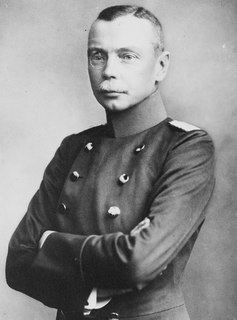A Quote by Alan Garner
The thing that I was brought up to prize above everything else is the intellect. There is no problem that the intellect cannot solve, but it never had an original thought. Originality is the realm of the unconscious.
Related Quotes
You are therefore able to run on this path, on which God is found above all vision, hearing, taste, touch, smell, speech, sense, rationality, and intellect. It is found as none of these, but rather above everything as God of gods and King of all kings. Indeed, the King of the world of the intellect is the King of kings and Lord of lords in the universe.
The essential thing is action. Action has three stages: the decision born of thought, the order or preparation for execution, and the execution itself. All three stages are governed by the will. The will is rooted in character, and for the man of action character is of more critical importance than intellect. Intellect without will is worthless, will without intellect is dangerous.
We don't always possess faith in the sense of having a clear embodiment of something to hang on to. The relationship between the intellect and faith is a very curious one. Sometimes the intellect can point us to faith, sometimes the intellect can stand in the way of faith. Sometimes, as St John of the Cross points out, we have to darken or blind the intellect in order to have faith.







































